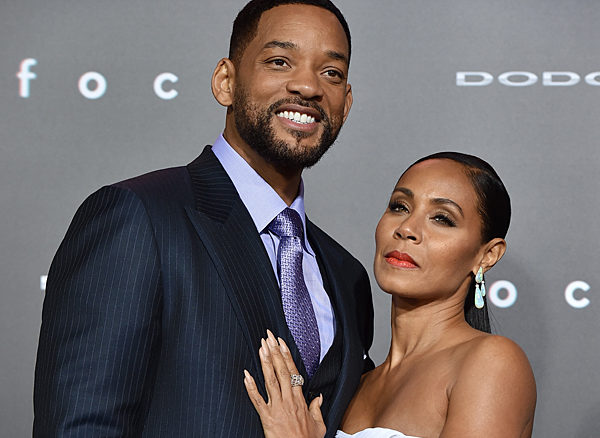
January 15th, 2015. The Academy Award nominations were announced. Not a single actor of colour was nominated. Out of all the movies nominated for Oscars, only five had directors who were not white. Upon the announcement, April Reign, managing editor of BroadwayBlack.com tweeted, “#OscarsSoWhite they asked to touch my hair L”. The awards passed, statutes were placed on mantles, and the world continued to turn.
January 14th, 2016. The Academy Award nominations were announced. All 20 contenders across the acting categories are white. Reign is now urging others to boycott the ceremony, while also encouraging those already involved in the ceremony to speak out “and take a stand against the lack of diversity in Hollywood”.
The hashtag has since grown legs, with Jada Pinkett-Smith asking whether people of colour should participate in the Oscars at all. Husband Will Smith, who this year starred in 2015’s NFL drama ‘Concussion’, is supporting her, as is director Spike Lee. President Obama addressed the controversy, saying “it is an expression of a broader issue.” Best Actor nominee Mark Ruffalo has said that the issue goes beyond the Oscars.
Hashtag activism is a term used to refer to the use of Twitter hashtags for internet activisim. Michelle Obama championed it with #BringBackOurGirls, and has since been used to raise awareness for everything from gender inequalities, to sexism, to protests against police brutality. Hashtag activism is often criticised and referred to as ‘vanity activism’. The perfect example? When people changed their profile pictures on Facebook to the French flag in the wake of the Paris attacks. Was that active engagement highlighting a desire to counteract terrorism, or just a passive, narcissistic pronouncement?
 So who’s to say #OscarsSoWhite will change anything about who gets nominated for awards, or who gets cast in movies?
So who’s to say #OscarsSoWhite will change anything about who gets nominated for awards, or who gets cast in movies?
Lian Bell, founder of the #WakingTheFeminists grass-roots movement, calling for equality for women across the Irish theatre. Growing out of the huge response to the Abbey Theatre’s ‘Waking The Nation’ programme for 2016, Bell’s hashtag went on to be supported and used by the likes of Debra Messing and Meryl Streep on social media. The movement gained such ground that, not only was a debate held in the theatre surrounding gender equality, but Bell amassed 5,500 signatures in support of the cause.
However, director of the Abbey Theatre Fiach Mac Conghail remains quiet, despite the hive of outrage.
“We haven’t heard anything official from the Abbey – other than the welcome news that they have formed a subcommittee of the board to put gender policy in place,” Lian says, “But we know that not all the programme for 2016 has yet been announced, so we’re still calling for the board to make sure that the inequality is addressed in the rest of the programme.”
The movement has been met with its fair share of criticism, with Bell saying that while the public reaction has been positive, the press’ has been more negative. Similarly, #OscarsSoWhite has been challenged both online and off. Previous winner – and presenter this year – Whoopi Goldberg dismissed it, saying, “The issue is not the Academy … Even if you fill the Academy with black and Latino and Asian members, if there’s no one on the screen to vote for, you’re not going to get the outcome that you want.”
Despite the nay-sayers, the hashtag and boycott has scared the Academy into action. For starters, they’ve lined up five non-white presenters, including Kevin Hart, The Weeknd, and Pharrell Williams. When it comes to addressing the root of the problem, the Academy is looking to the voting system. Academy president Cheryl Boone Isaacs is doubling the number of “women and diverse members of the Academy” by 2020. With that said, 2020 is still a long way off, and the Academy’s immediate action, involving the addition of new members to its executive and board committees “where key decisions about membership and governance are made.”
The Screen Actor’s Guild Awards were held last week, with the ceremony being applauded for celebrating diversity in the field, with Idris Elba, Queen Latifah and Viola Davis all receiving awards. With voting only closing the day before the SAGs, can we say definitively that the hashtag encouraged more diverse voting? No – but it’s influence can hardly be ignored either.
#OscarsSoWhite has been less of tidal wave, and more of a breaking wave of change. While it is almost universally agreed that accolades should be awarded to those who are most deserving and not determined by race or gender, the struggle for equal representation within the arts will continue.
Fionnuala Jones
UPDATED 15/02/2016: Chair of the Abbey Theatre Board Bryan McMahon released a statement in December, saying that they “are committed to addressing the gender imbalance in the 2016 programme. Importantly, we will do so in line with the duties and responsibilities of the Board.
“We are also committed to the development of a comprehensive policy and detailed implementation plan to address this issue. We look forward to publishing the gender balance policy, which will inform the direction of the Abbey Theatre in future years. We are committed to playing a leadership role in assisting the wider arts community to address what is a very important societal issue.”
Director of the Abbey Theatre, Fiach MacConghail also commented, saying, “I am determined to programme the work of women artists in the latter half of 2016. An exciting and innovative programme of plays will be confirmed when we announce our Autumn/Winter Season.”



Leave a Reply